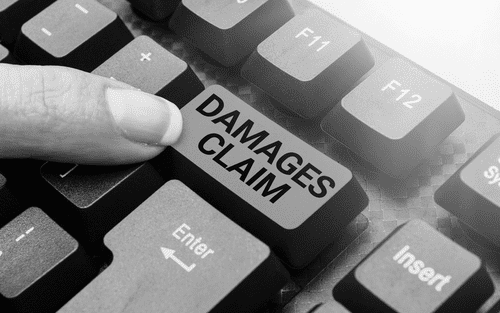Handling Punitive Damages in Personal Injury Cases
Whether you've been injured in an accident, are dealing with a personal injury claim, or facing another legal issue, Mendez & Sanchez APC is here to fight for you. Contact us today for a free, no-obligation consultation.
Call Us Now
If you have suffered a personal injury due to someone else's negligence, you may be entitled to compensation. This compensation can cover things like medical expenses, lost wages, and pain and suffering. In some cases, punitive damages may also be awarded. Punitive damages are different from compensatory damages because they are intended to punish the defendant for their actions and deter them from engaging in similar behavior in the future.
If you are considering filing a personal injury lawsuit, it is important to understand how punitive damages work and how they are handled in a personal injury case. Working with a personal injury attorney in Los Angeles can help you navigate the legal process and maximize your chances of receiving the compensation you deserve.

What are punitive damages?
Punitive damages are a type of damages that can be awarded in addition to compensatory damages in a personal injury case. Unlike compensatory damages, which are intended to compensate the injured party for their losses, punitive damages are intended to punish the defendant for their behavior and deter them from engaging in similar behavior in the future.
Punitive damages are typically only awarded in cases where the defendant's behavior was particularly egregious, reckless, or intentional.
Egregious, reckless, or intentional behaviors in personal injury lawsuits are those that demonstrate a high level of disregard for the safety and well-being of others. These behaviors can range from minor negligence to intentional harm, and can result in serious injuries or even death.
One example of egregious behavior in a personal injury lawsuit is drunk driving. If someone chooses to get behind the wheel of a car while under the influence of drugs or alcohol, they are engaging in reckless behavior that puts others on the road at risk. If that behavior results in an accident that causes serious injury or death, the driver may be held liable for punitive damages in addition to compensatory damages.
Another example of egregious behavior in a personal injury lawsuit is medical malpractice. If a healthcare provider fails to follow established standards of care, resulting in serious injury or death, they may be held liable for punitive damages. This can include cases of misdiagnosis, surgical errors, and medication errors.
Intentional harm is another example of egregious behavior in a personal injury lawsuit. If someone intentionally causes harm to another person, they may be held liable for both compensatory and punitive damages. This can include cases of assault, battery, and other intentional torts.
For example, if someone gets into a physical altercation with another person and causes serious injury, they may be held liable for both compensatory and punitive damages. The compensatory damages would cover the victim's medical expenses, lost wages, and other damages, while the punitive damages would serve to punish the perpetrator for their intentional actions.
In cases of product liability, manufacturers may be held liable for egregious behavior if they knowingly produce and sell products that are defective and dangerous. If a manufacturer is aware of a defect in their product and fails to take action to correct it, resulting in serious injury or death, they may be held liable for punitive damages in addition to compensatory damages.
Egregious, reckless, or intentional behaviors in personal injury lawsuits are those that demonstrate a high level of disregard for the safety and well-being of others. These behaviors can range from minor negligence to intentional harm and can result in serious injuries or even death. If you have been injured due to the egregious behavior of another person or entity, it is important to speak with a personal injury attorney who can help you understand your legal options and pursue the compensation you deserve.

How are punitive damages calculated?
Punitive damages are calculated based on a variety of factors, including the severity of the defendant's behavior and their ability to pay. In California, there is no specific formula for calculating punitive damages. Instead, the amount of punitive damages awarded is left up to the discretion of the jury or judge.
In some cases, the amount of punitive damages awarded can be significantly higher than the amount of compensatory damages. This is because punitive damages are intended to punish the defendant for their behavior and deter them from engaging in similar behavior in the future. In some cases, punitive damages can be several times higher than compensatory damages.
How are punitive damages handled in a personal injury case?
In a personal injury case, the plaintiff must prove that the defendant was negligent and that their negligence caused the plaintiff's injuries. If the plaintiff is successful, they may be awarded compensatory damages to cover their medical expenses, lost wages, and other damages.
If the defendant's behavior was particularly egregious, reckless, or intentional, the plaintiff may also be awarded punitive damages. However, the burden of proof for punitive damages is higher than for compensatory damages. The plaintiff must show that the defendant's behavior was not only negligent, but also constituted a willful and conscious disregard for the safety of others.
Working with a personal injury attorney in Los Angeles can help you navigate the legal process and maximize your chances of receiving punitive damages. An experienced attorney can help you gather evidence, build a strong case, and present your case effectively in court.
In some cases, the defendant may agree to a settlement before the case goes to trial. If this happens, the plaintiff and defendant will negotiate a settlement amount that includes both compensatory and punitive damages. If the plaintiff and defendant are unable to reach a settlement, the case will go to trial and the judge or jury will determine the amount of damages to be awarded.

Conclusion
If you have suffered a personal injury due to someone else's negligence, you may be entitled to compensation, including both compensatory and punitive damages. Punitive damages are intended to punish the defendant for their behavior and deter them from engaging in similar behavior in the future. Working with a personal injury attorney in Los Angeles can help you navigate the legal process and maximize your chances of receiving the compensation you deserve. Remember, the burden of proof for punitive damages is higher than for compensatory damages, so it is important to build a strong case with the help of an experienced attorney.


